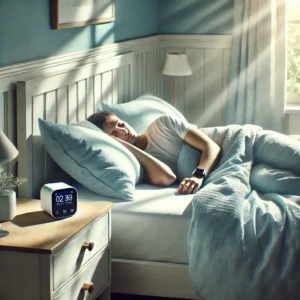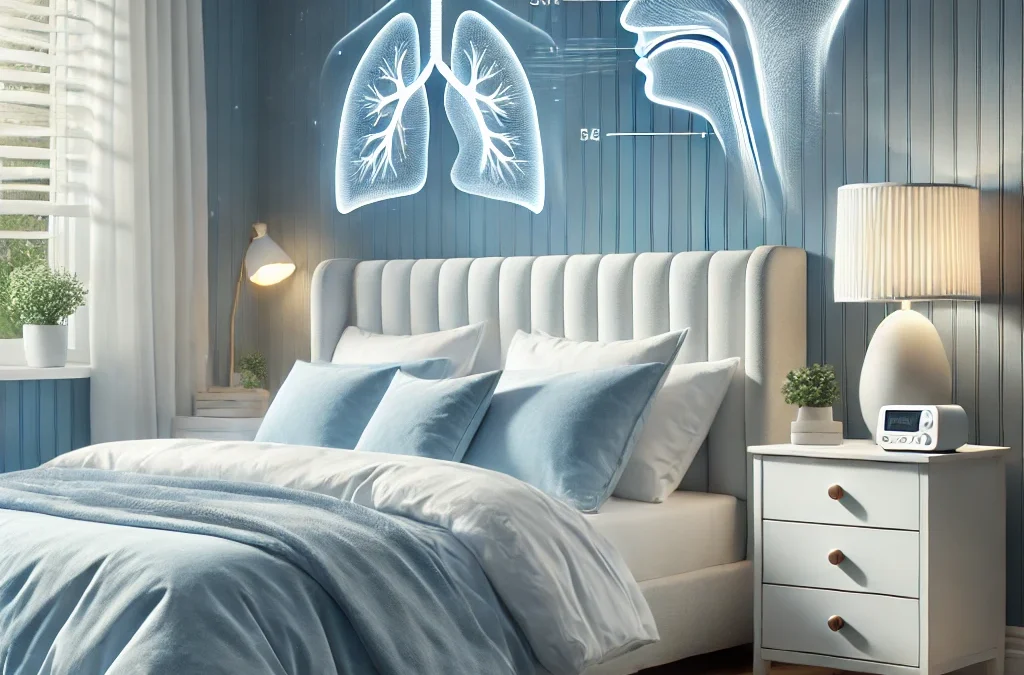Snoring is a common sleep-related phenomenon that affects millions of people worldwide. But is there a link between snoring and sleep apnea? Understanding this connection is crucial for identifying potential health risks and seeking appropriate treatment. In this article, we’ll explore whether sleep apnea causes snoring, backed by scientific evidence, and what steps you can take to address it.
What is Sleep Apnea?
Sleep apnea is a serious sleep disorder characterized by repeated interruptions in breathing during sleep. These interruptions, known as “apneas,” can last for a few seconds to over a minute and occur due to either a blockage in the airway (Obstructive Sleep Apnea, or OSA) or a failure of the brain to send proper signals to the muscles controlling breathing (Central Sleep Apnea, or CSA).

Key Facts About Sleep Apnea:
- Prevalence: Over 936 million people worldwide are estimated to suffer from obstructive sleep apnea (OSA) .
- Health Impact: Untreated sleep apnea increases the risk of high blood pressure, heart disease, stroke, diabetes, and other serious conditions .
- Symptoms: Common symptoms include excessive daytime sleepiness, morning headaches, and loud snoring.
Does Sleep Apnea Cause Snoring?
The short answer is yes—snoring can be a significant symptom of sleep apnea, particularly in its obstructive form. Here’s how:
- Airway Obstruction: In obstructive sleep apnea, the muscles in the throat relax excessively during sleep, causing the airway to narrow or collapse. This results in turbulent airflow, which causes the soft tissues in the throat to vibrate and produce the sound of snoring.
- Frequency and Loudness: Not all snorers have sleep apnea, but those with sleep apnea often snore loudly and regularly. Studies show that around 50% of people who snore habitually have obstructive sleep apnea .
- Pauses in Breathing: Unlike regular snoring, snoring associated with sleep apnea is often accompanied by pauses in breathing, gasping, or choking sounds. This is a critical differentiator that may indicate a more serious underlying condition.
Signs Your Snoring May Be Related to Sleep Apnea
If you or someone you know snores, look out for the following signs that could indicate sleep apnea:
- Loud, Persistent Snoring: Snoring that is loud enough to disturb your partner or wake you up.
- Gasping or Choking During Sleep: Frequent episodes of gasping, snorting, or choking.
- Excessive Daytime Sleepiness: Feeling extremely tired during the day despite getting a full night’s sleep.
- Morning Headaches: Waking up with headaches is a common symptom of sleep apnea.
- Insomnia or Difficulty Staying Asleep: Interrupted sleep patterns due to breathing problems. .
How to Find Out if You Have Sleep Apnea
If you snore frequently and experience any of the symptoms listed above, it’s essential to seek a professional evaluation. One effective way to diagnose sleep apnea is through a home sleep study.
Benefits of a Home Sleep Study:
- Convenience: Conducted in the comfort of your own home.
- Affordability: Often less expensive than in-lab sleep studies.
- Ease of Use: Simple setup with instructions provided.
Take Action: Get Tested for Sleep Apnea Today
Don’t ignore the signs! If you think you might have sleep apnea, consider purchasing the At Home Sleep Labs sleep apnea kit. It allows you to test for sleep apnea in the comfort of your own home, providing you with a comprehensive sleep analysis and helping you take the first step toward better sleep health.


